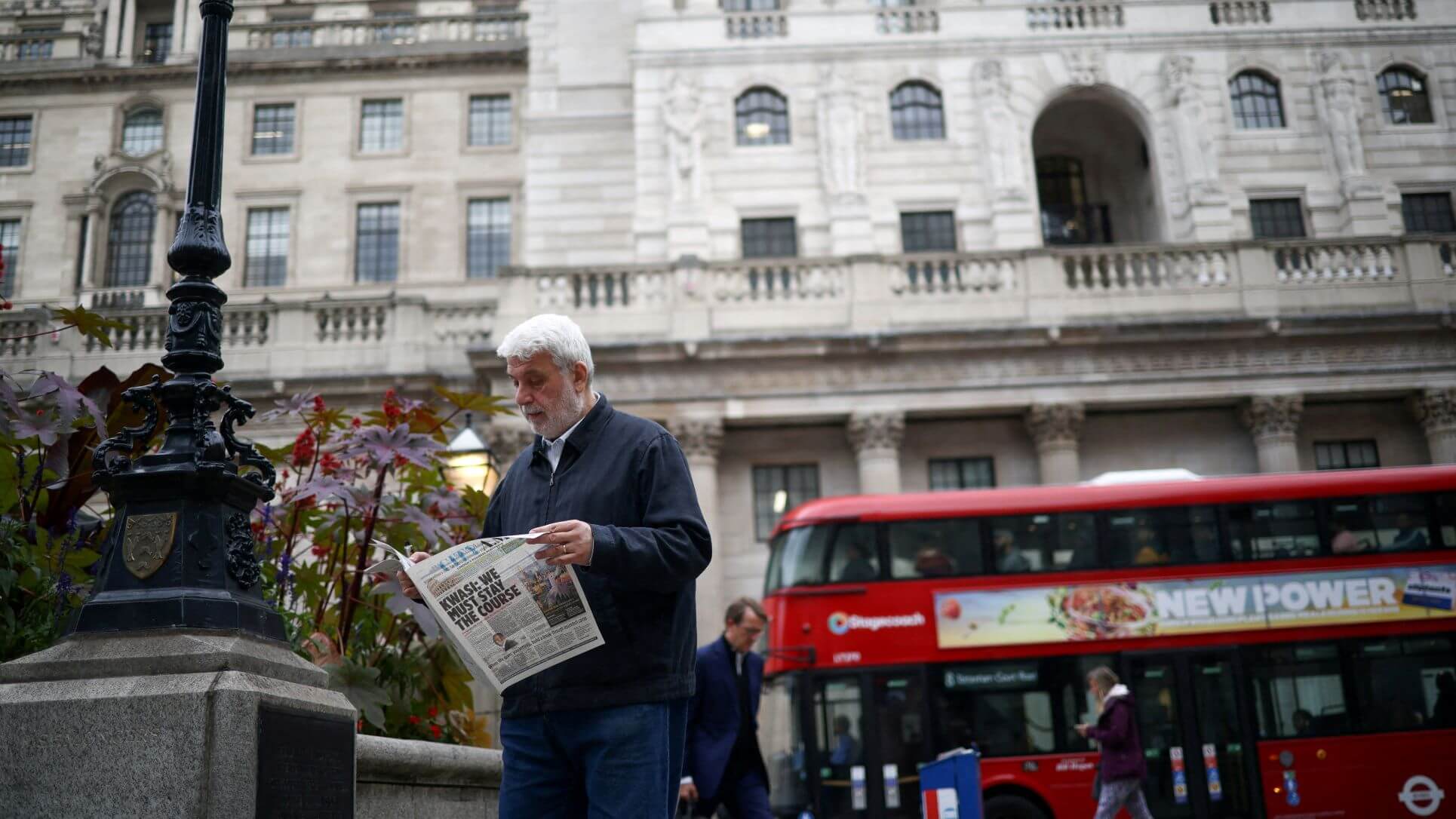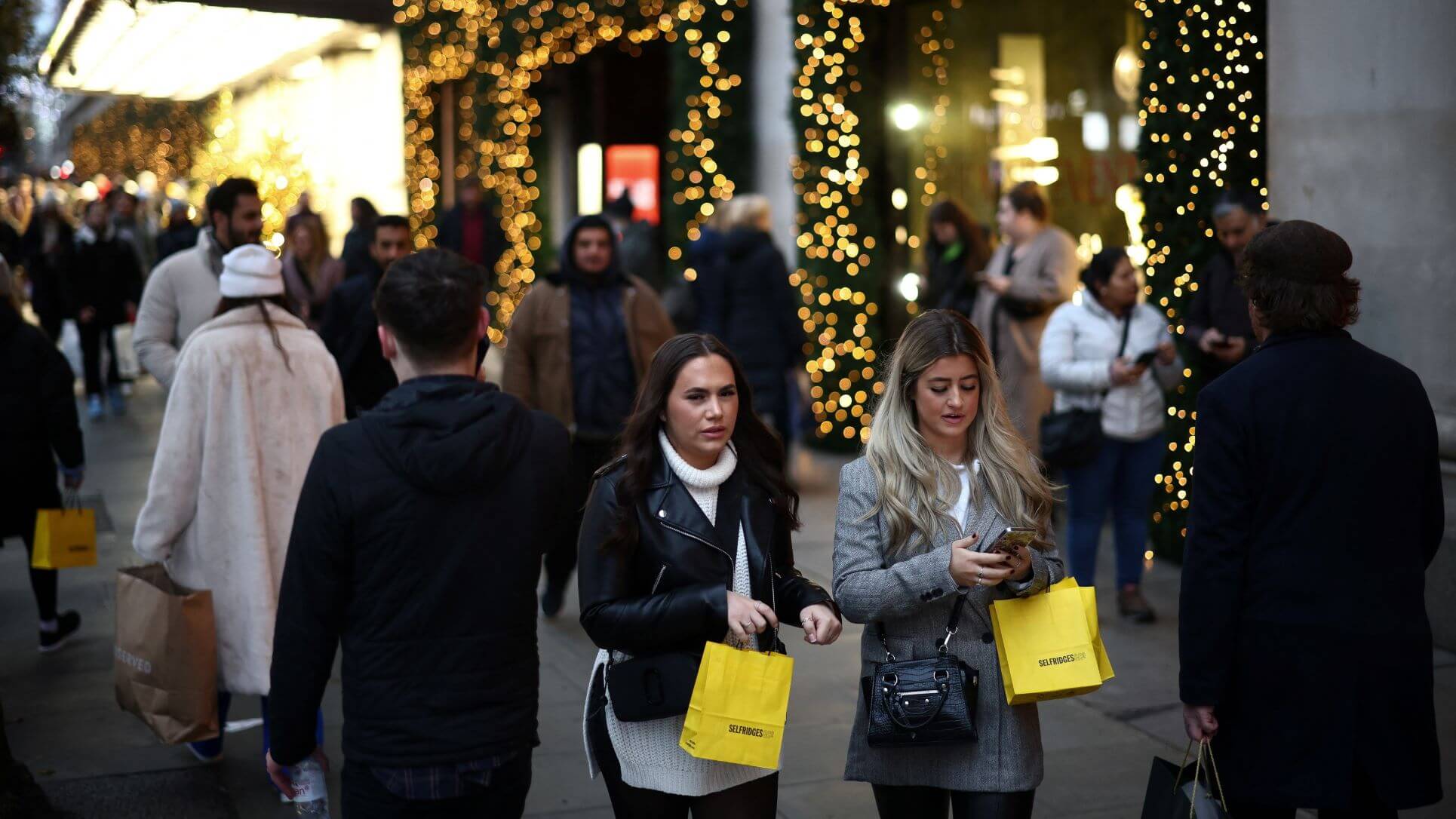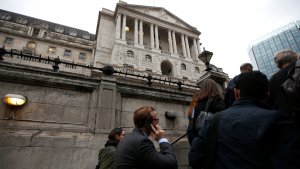UK Wage Growth Slowest Since 2022, Offering Relief To Bank Of England
Britain's minimum wage will rise by 9.8% to £11.44 pounds an hour next month.

British wages excluding bonuses grew at their slowest pace since October 2022 while the unemployment rate edged up unexpectedly, according to data which may slightly ease the Bank of England's inflation worries.
Regular wage growth dropped to 6.1% in the three months to January from 6.2% in the final quarter of 2023, the Office for National Statistics said. Economists had expected another reading of 6.2%.
However, falling inflation means that in real terms, pay was up by 2.0% compared with a year earlier, the fastest growth since September 2021.
Sterling weakened against the U.S. dollar and euro immediately after the data was published, and markets slightly increased bets on a BoE rate cut in June, although one is not fully priced until August.
The BoE is watching wage growth to gauge underlying inflation pressures as it considers when to cut interest rates.
"Today's data are unlikely to warrant a major policy shift from the Bank of England, particularly with pay growth still robust and continued worries it could lead to a persistence in price pressures," Yael Selfin, chief economist at KPMG UK, said.
"However, we expect the labour market to weaken in the coming months, which should reduce momentum in wage growth and raise the prospect of interest rate cuts from the summer onwards."
The unemployment rate rose to 3.9% from 3.8%, reversing a dip in the final quarter of 2023 when it touched an 11-month low, although the statistics office is still overhauling its survey.
On Monday, it said there was more uncertainty than usual about the unemployment rate, equivalent to around 0.1 percentage point in either direction, due to a problem with analysing labour data from Northern Ireland.
Growth in total pay - which includes more volatile bonus payments - slowed to 5.6% from 5.8%, also a bigger drop than expected and the lowest since the three months to July 2022.
WAGE PRESSURE
Wage growth is running at roughly double its rate before the COVID-19 pandemic, when inflation was close to its 2% target.
While some top BoE officials expect wage growth to drift lower as headline inflation falls, others fear that labour shortages since the pandemic will make this a slow process.
BoE interest rate-setter Catherine Mann, who has been calling for further increases in borrowing costs, said on Monday there was still "a long way" to cool inflation pressures.
The BoE expects falling energy prices to push inflation back to its 2% target in the second quarter before rising services prices and wage costs lift inflation towards 3% later this year.
Britain's minimum wage will rise by 9.8% to 11.44 pounds ($14.65) an hour next month, with knock-on effects for most major retail employers which pay just above this, including Tesco, Sainsbury's, Amazon and Primark.
Wages for higher-paid staff have been increasing more slowly. Human resources data firm XpertHR said annual pay settlements at large employers averaged 5% in January, and businesses surveyed by the BoE in February expected to raise pay by 4.9% over the coming year.
Figures from job website Indeed showed pay growth for advertised vacancies slowed to 6.3% in February from 6.5% in January.
"Today's ONS figures paint a familiar picture of further gradual softening in the labour market and easing pay pressures, but it remains an incremental process," Indeed economist Jack Kennedy said.
The Recruitment and Employment Confederation said on Monday that demand for staff fell last month at the sharpest pace since January 2021, when COVID-19 restrictions were tightened.
Tuesday's data showed vacancies fell for the 20th time in a row in the three months to February, dropping by 43,000 from the September-to-November period and down by 224,000 on a year earlier at 908,000.
(Reporting by Suban Abdulla and David Milliken; Editing by Kate Holton, William Schomberg and Christina Fincher)
Thanks for signing up to Minutehack alerts.
Brilliant editorials heading your way soon.
Okay, Thanks!

